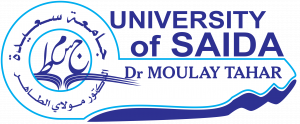Wiki-development of an ontology for the academic domain
the objective is to develop an ontology for the university domain. It is asked -
- to propose the main concepts and relationships between them which fall within the domain.
- give a brief description of each concept and each relationship. the description concerns the definition of the concept or the relationship and can be in natural language or a logical language such as predicate logics or description logics
N.B. La participation dans ce Wiki sera comptabilisée dans l'examen du TD.
Une ontologie pour le domaine universitaire
جدول المحتويات
### Ontology for the University Domain [تحرير]
#### Main Concepts:
1. **University**
2. **Faculty**
3. **Department**
4. **Course**
5. **Student**
6. **Professor**
7. **Staff**
8. **Classroom**
9. **ResearchProject**
10. **Administration**
11. **DegreeProgram**
12. **Enrollment**
13. **Exam**
14. **Grade**
15. **Library**
#### Relationships:
1. **hasFaculty**
2. **hasDepartment**
3. **offersCourse**
4. **teaches**
5. **attends**
6. **employs**
7. **locatedIn**
8. **participatesIn**
9. **administers**
10. **enrolledIn**
11. **takesExam**
12. **receivesGrade**
13. **borrowsBook**
### Description of Each Concept:
1. **University**: An educational institution that offers undergraduate and postgraduate programs. It comprises faculties, departments, and provides various academic and administrative services.
2. **Faculty**: A major division within the university, composed of departments, offering courses related to a specific field of study (e.g., Faculty of Science).
3. **Department**: A subdivision within a faculty, focused on a particular academic discipline (e.g., Department of Physics).
4. **Course**: A unit of teaching that covers a specific subject within a department, typically comprising lectures, assignments, and exams.
5. **Student**: An individual who is enrolled in a degree program at the university, attending courses and participating in exams.
6. **Professor**: An academic staff member responsible for teaching courses, conducting research, and guiding students.
7. **Staff**: Employees of the university who support the administration, maintenance, and other operational aspects.
8. **Classroom**: A physical or virtual space where courses are conducted.
9. **ResearchProject**: A systematic investigation conducted to establish facts or principles or to collect information on a subject, typically led by professors and involving students.
10. **Administration**: The group of individuals responsible for the management and operation of the university.
11. **DegreeProgram**: A structured set of courses and requirements leading to an academic degree.
12. **Enrollment**: The process through which a student registers for a course or degree program.
13. **Exam**: An assessment intended to measure a student's knowledge, skills, or abilities in a particular course.
14. **Grade**: A measure of the student's performance in a course or exam, typically expressed as a letter or percentage.
15. **Library**: A facility within the university that provides access to books, journals, and other academic resources.
### Description of Each Relationship:
1. **hasFaculty**: University → Faculty
- Indicates that a university comprises multiple faculties.
2. **hasDepartment**: Faculty → Department
- Indicates that a faculty includes several departments.
3. **offersCourse**: Department → Course
- Indicates that a department offers various courses.
4. **teaches**: Professor → Course
- Indicates that a professor teaches one or more courses.
5. **attends**: Student → Course
- Indicates that a student attends a course.
6. **employs**: University → Staff/Professor
- Indicates that a university employs staff and professors.
7. **locatedIn**: Classroom → Department
- Indicates that a classroom is associated with a specific department.
8. **participatesIn**: Student/Professor → ResearchProject
- Indicates that a student or professor is involved in a research project.
9. **administers**: Administration → University
- Indicates that the administration manages the university.
10. **enrolledIn**: Student → DegreeProgram
- Indicates that a student is enrolled in a degree program.
11. **takesExam**: Student → Exam
- Indicates that a student takes an exam in a course.
12. **receivesGrade**: Student → Grade
- Indicates that a student receives a grade for their performance in a course or exam.
13. **borrowsBook**: Student/Professor → Library
- Indicates that a student or professor borrows books from the library.
This ontology captures the fundamental structure and relationships within a university setting, enabling better understanding and management of the various entities and their interactions.
